Key Calendar Dates 2025: A Comprehensive Overview
Related Articles: Key Calendar Dates 2025: A Comprehensive Overview
- October 2025 Calendar Kids: A Celebration Of Childhood And Imagination
- January 2025 Calendar Page Printable: Plan Your Month Effectively
- Sierra Club 2025 Engagement Calendar: A Comprehensive Guide To Sustainable Living
- Free Printable September 2025 Calendar
- Philippine Calendar 2025 With Holidays
Introduction
With enthusiasm, let’s navigate through the intriguing topic related to Key Calendar Dates 2025: A Comprehensive Overview. Let’s weave interesting information and offer fresh perspectives to the readers.
Table of Content
Video about Key Calendar Dates 2025: A Comprehensive Overview
Key Calendar Dates 2025: A Comprehensive Overview
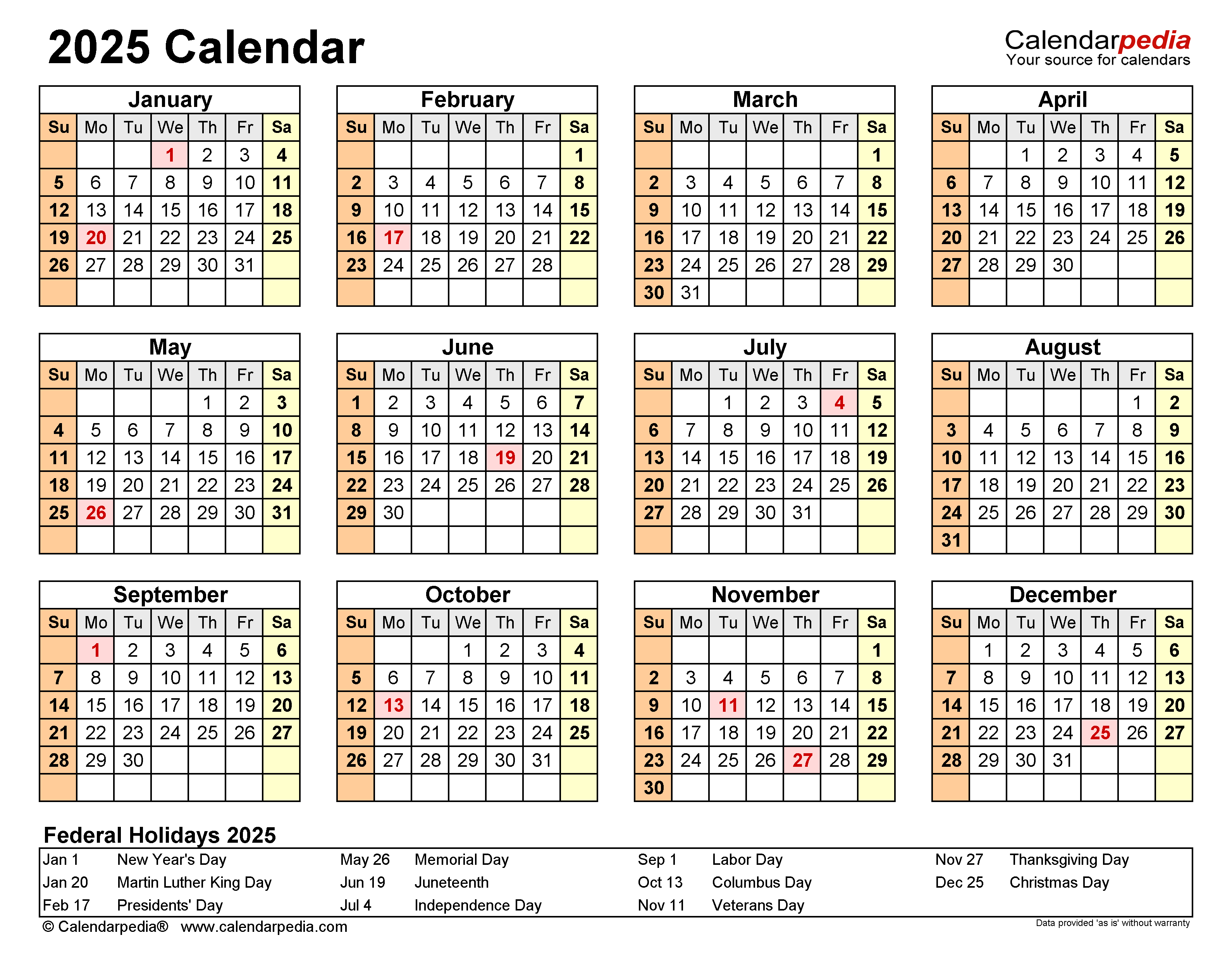
The year 2025 holds a plethora of significant events, ranging from major holidays to cultural observances and astronomical phenomena. Understanding these key calendar dates is crucial for planning, scheduling, and staying informed throughout the year. This comprehensive article provides an in-depth overview of the most important dates in 2025, ensuring you stay organized and aware.
January
- New Year’s Day (January 1st): The first day of the year, celebrated with fireworks, parades, and resolutions.
- Epiphany (January 6th): A Christian holiday commemorating the visit of the Magi to the infant Jesus.
- Martin Luther King Jr. Day (January 20th): A federal holiday in the United States honoring the civil rights leader.
February
- Groundhog Day (February 2nd): A folkloric tradition where a groundhog’s behavior predicts the length of winter.
- Valentine’s Day (February 14th): A celebration of love and romance, marked by gifts and expressions of affection.
- Presidents’ Day (February 17th): A federal holiday in the United States honoring all U.S. presidents, primarily George Washington and Abraham Lincoln.
March
- International Women’s Day (March 8th): A global celebration recognizing the achievements and rights of women.
- St. Patrick’s Day (March 17th): A cultural and religious holiday honoring the patron saint of Ireland, celebrated with parades and green attire.
- Spring Equinox (March 20th): The astronomical event marking the equal duration of day and night, signaling the beginning of spring in the Northern Hemisphere.
April
- Easter Sunday (April 6th): A Christian holiday commemorating the resurrection of Jesus Christ, celebrated with church services, egg hunts, and family gatherings.
- Earth Day (April 22nd): A global event raising awareness about environmental issues and promoting sustainable practices.
May
- Mother’s Day (May 11th): A celebration honoring mothers and their contributions to families and society.
- Memorial Day (May 26th): A federal holiday in the United States honoring those who died while serving in the military.
June
- Father’s Day (June 15th): A celebration honoring fathers and their role in families and society.
- Summer Solstice (June 21st): The astronomical event marking the longest day of the year in the Northern Hemisphere, signaling the beginning of summer.
July
- Independence Day (July 4th): A federal holiday in the United States celebrating the country’s independence from British rule.
- Bastille Day (July 14th): A national holiday in France commemorating the storming of the Bastille during the French Revolution.
August
- International Cat Day (August 8th): A global celebration recognizing and appreciating cats.
- Fall Equinox (September 23rd): The astronomical event marking the equal duration of day and night, signaling the beginning of fall in the Northern Hemisphere.
October
- Halloween (October 31st): A cultural holiday involving costumes, trick-or-treating, and spooky decorations.
November
- Thanksgiving Day (November 27th): A federal holiday in the United States celebrating gratitude and family gatherings.
December
- Hanukkah (December 7th-15th): A Jewish holiday commemorating the victory of the Maccabees over the Seleucid Empire.
- Christmas Day (December 25th): A Christian holiday celebrating the birth of Jesus Christ, marked by gift-giving, family gatherings, and religious observances.
- New Year’s Eve (December 31st): The last day of the year, often celebrated with parties, fireworks, and resolutions for the upcoming year.
Additional Notable Dates
- Chinese New Year (January 22nd): The beginning of the Chinese lunar new year, celebrated with parades, fireworks, and family gatherings.
- Ramadan (March 2nd-April 1st): A month-long Muslim holiday involving fasting, prayer, and spiritual reflection.
- Eid al-Fitr (April 2nd): A Muslim holiday marking the end of Ramadan, celebrated with feasts and festivities.
- Diwali (November 13th-15th): A Hindu festival of lights, celebrated with fireworks, prayers, and family gatherings.
- Kwanzaa (December 26th-January 1st): A week-long African American holiday celebrating family, community, and cultural heritage.
Conclusion
The key calendar dates of 2025 encompass a diverse range of holidays, observances, and astronomical events. Understanding these dates is essential for planning, scheduling, and staying informed throughout the year. By being aware of these important milestones, individuals and organizations can ensure they are prepared for upcoming celebrations, holidays, and other significant occasions.

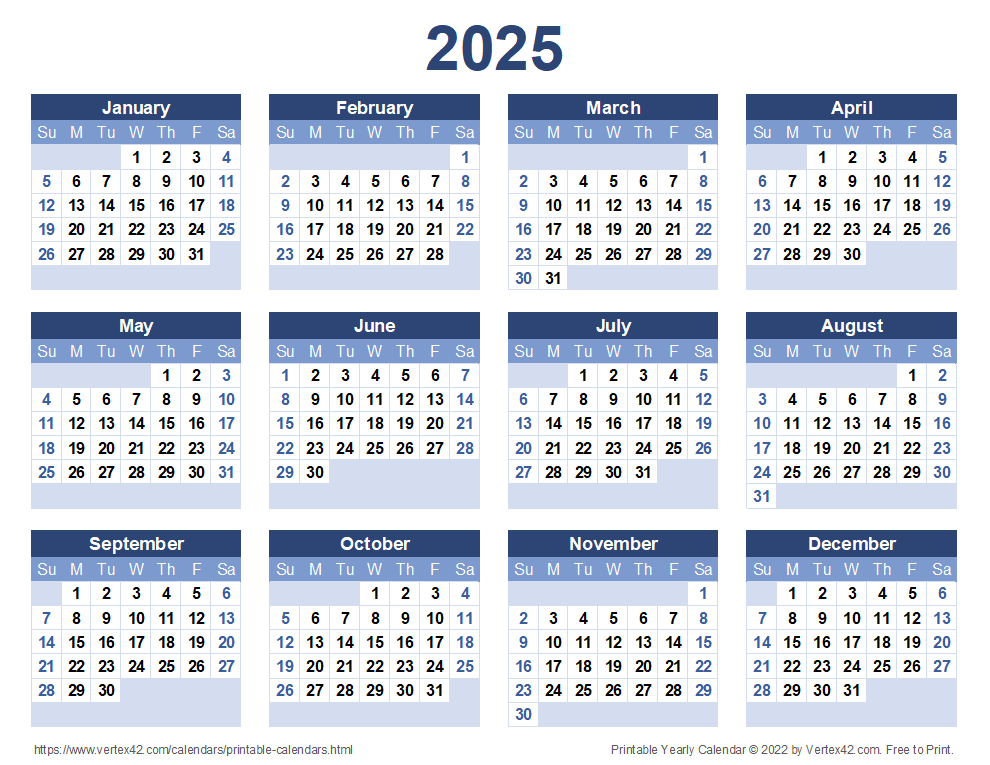

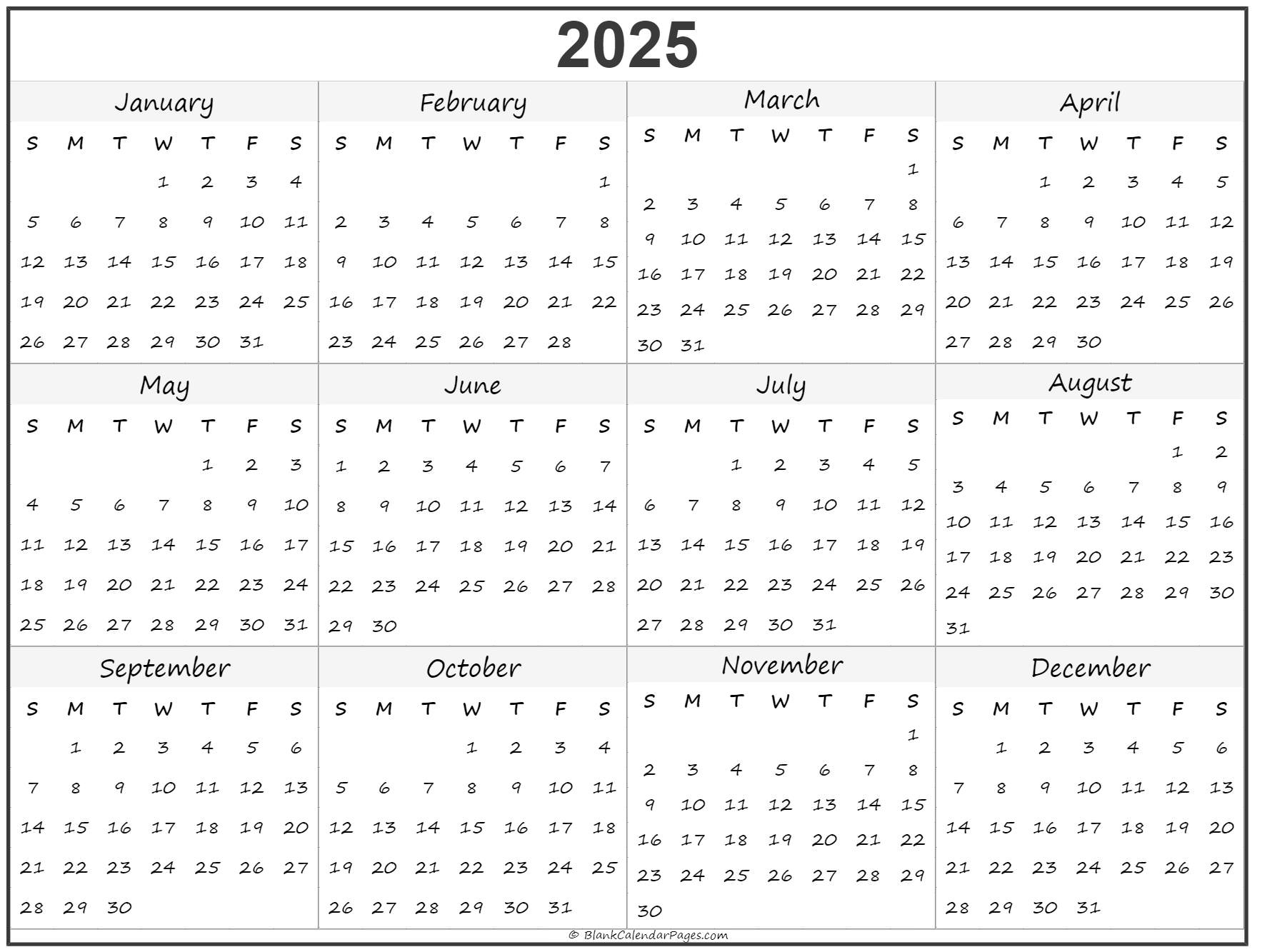

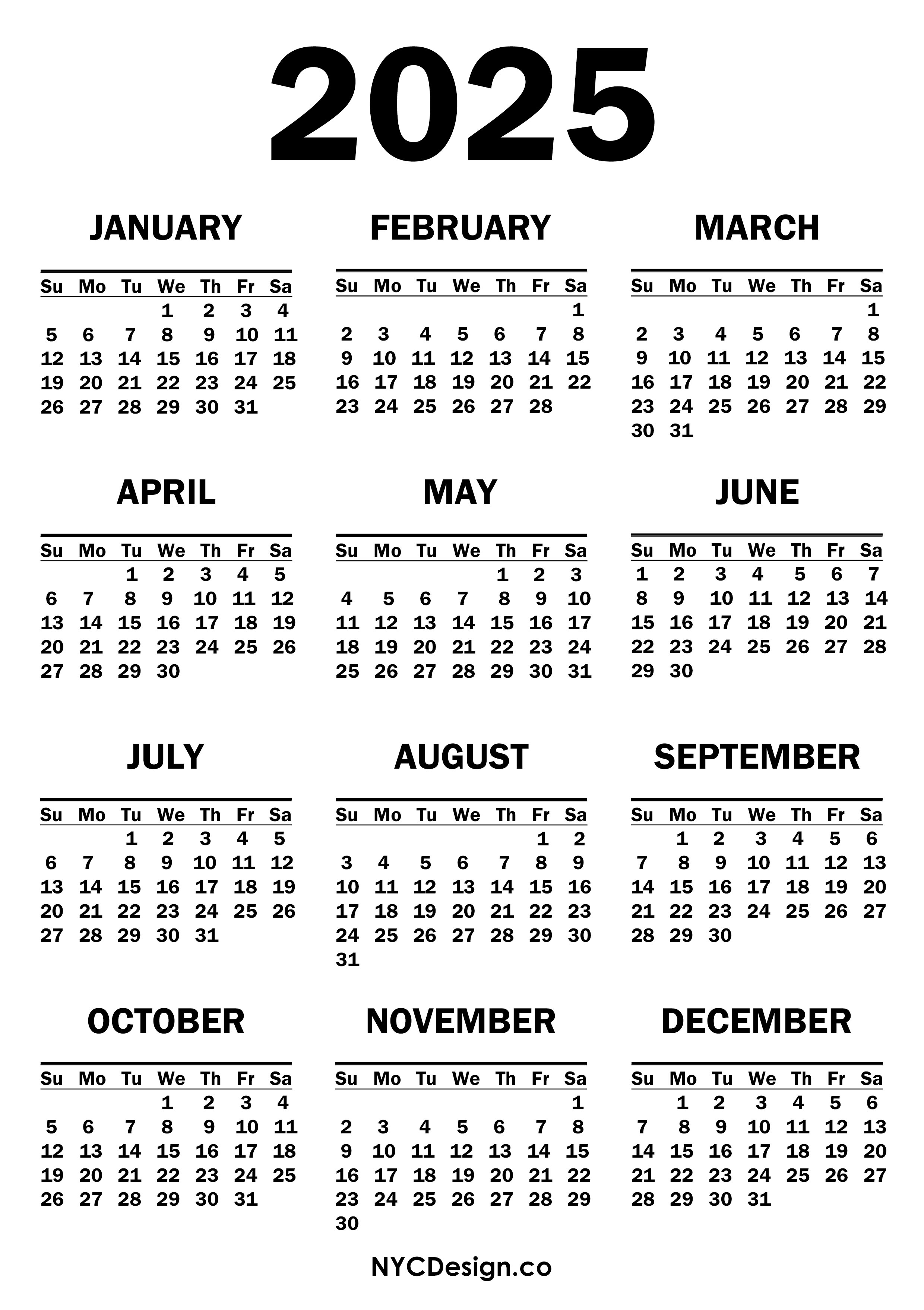
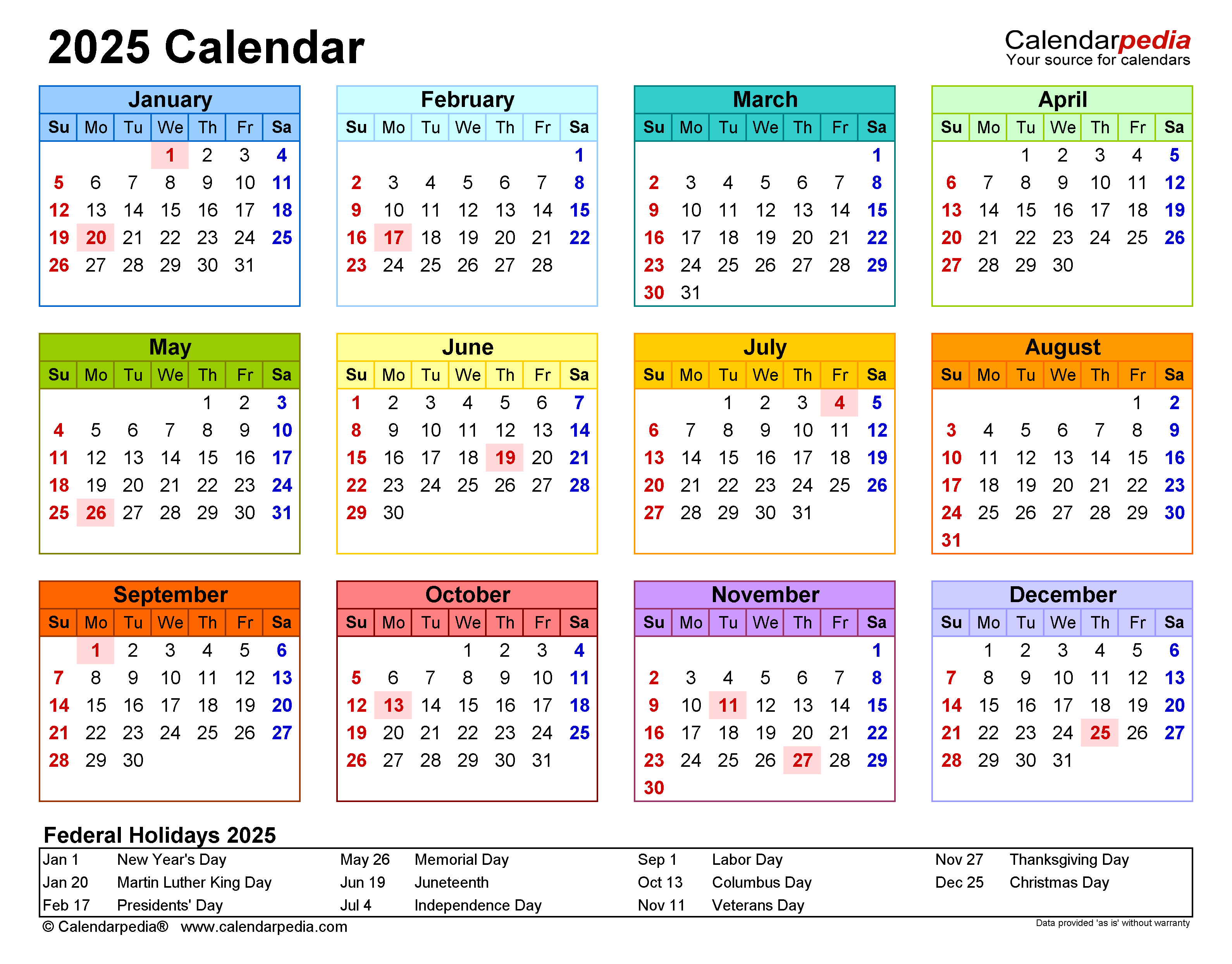
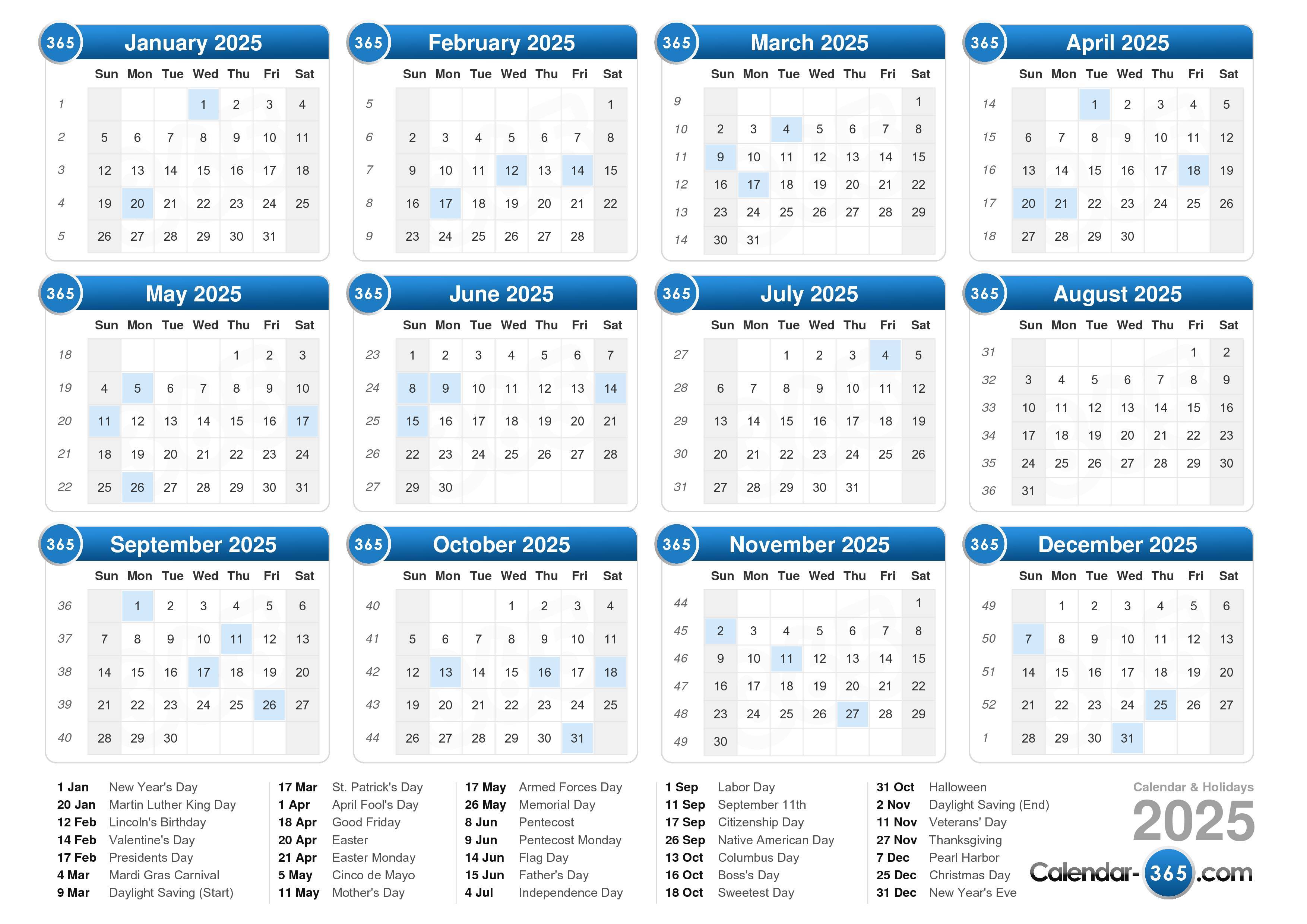
Closure
Thus, we hope this article has provided valuable insights into Key Calendar Dates 2025: A Comprehensive Overview. We appreciate your attention to our article. See you in our next article!